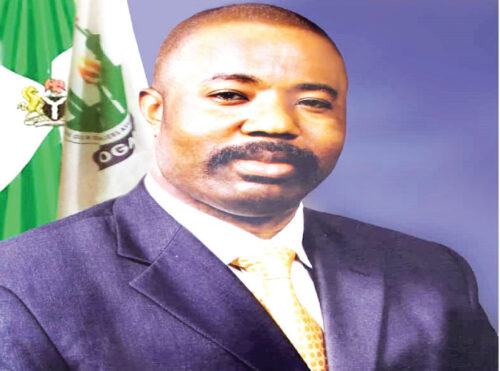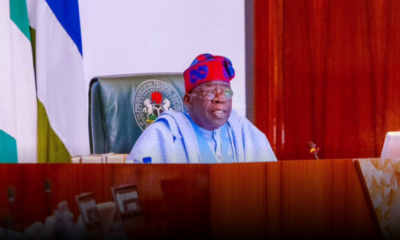Oil marketers, on Monday, claimed that the recent imposition of a 7.5 percent value-added tax on automotive petrol oil, also known as diesel, and the ongoing foreign exchange crisis in Nigeria had increased the price of the commodity to between N900 and N950 per litre in numerous areas.
Local firms have responded to the development by warning that it could result in the closure of some factories and the loss of jobs.
The marketers claimed that their difficulty to obtain US dollars was preventing them from importing diesel during a press briefing held in Abuja under the auspices of the Natural Oil and Gas Suppliers Association of Nigeria.
The National President, NOGASA, Benneth Korie, told journalists that the cost of diesel was around N650/litre before the Federal Government introduced a 7.5 percent VAT on the commodity.
An earlier report on June 20, 2023, had it that the Federal Government had commenced the implementation of the payment of 7.5 percent VAT on diesel.
Officials of the Nigeria Customs Service and Federal Inland Revenue Service had confirmed this in Abuja, stressing that AGO was not exempted from the payment of VAT based on the VAT Modification Order 2021.
Speaking at the press briefing on Monday, the NOGASA president said, “Diesel price is now approaching N900 to N950/litre depending on where you are buying it from. Before the introduction of VAT on diesel by the FIRS, diesel was around N650/litre.
“This increase in price is also due to the scarcity of the dollars. The government has to intervene in this dollar situation. All bank CEOs, Central Bank of Nigeria, and others must meet to address this dollar issue. The way it is going, it will destroy a lot of things for us if it is not controlled.”
Korie also called on President Bola Tinubu to get Nigeria’s refineries working. He said the pressure by marketers and other importers on dollars would reduce when Nigeria’s refineries start to pump out refined products.
“Our refineries were built by human beings and can be fixed by human beings. I believe Nigerian engineers can fix these refineries, instead of us depending on imports. This is not sustainable.
“We are pilling pressure on the very limited dollars in the country by importing petroleum products and other commodities. But once our refineries start working, this pressure will drastically reduce. The government has to fix our refineries,” he stated.
The NOGASA president also decried the state of Nigerian roads, as he gave an instance with the Port Harcourt-Warri road, stressing that about 500 tankers were currently trapped on that road due to its abysmal nature.
“For two weeks now our tankers have been on that road; you can’t cross it. Our roads are bad, our trucks are trapped on the Warri-Abuja road for two weeks, and our drivers are kidnapped, killed, while others suffer.
“Some of the roads are blocked. If the government does not fix those roads, then petroleum products will stop coming to Abuja and other locations across the country,” Korie stated.
Meanwhile, reacting to the development, the Director-General of the Nigerian Textile Manufacturers Association, Hamma Kwajaffa, said several textile manufacturers were contemplating shutting down their operations owing to rising costs, largely caused by skyrocketing energy costs.
The DG said textile manufacturers could not afford to buy diesel at the projected price of _
He said, “Many are contemplating closing for now. We can’t meet up with that kind of amount. We have less than 24 textiles today, those who are working are contemplating closure. They have been pushed to the wall. These businesses are not in charity. They have to break even.
In the same vein, the Chief Executive Officer of Coleman Technical Industries Limited, George Onafowokan said increased diesel costs implied increased cost of production for the company.
He urged the government to find lasting solutions to the constant increase in diesel costs.
Onafowokan said, “Whenever the price of diesel goes up, it makes everybody’s cost go up. Logistics costs will go up for everybody, power costs will go up if diesel sells at N950.
“We are all in crisis. For most businesses in Nigeria, especially manufacturers, we are taking hits day in day out and sincerely, the government needs to do better not only in giving palliatives to the people, but for the businesses that are employing them, especially manufacturers.”
Credit: The Punch

 BIG STORY2 days ago
BIG STORY2 days ago
 BIG STORY4 days ago
BIG STORY4 days ago
 BIG STORY3 days ago
BIG STORY3 days ago
 BIG STORY4 days ago
BIG STORY4 days ago
 BIG STORY3 days ago
BIG STORY3 days ago
 BIG STORY2 days ago
BIG STORY2 days ago
 BIG STORY1 day ago
BIG STORY1 day ago
 BIG STORY9 hours ago
BIG STORY9 hours ago






















